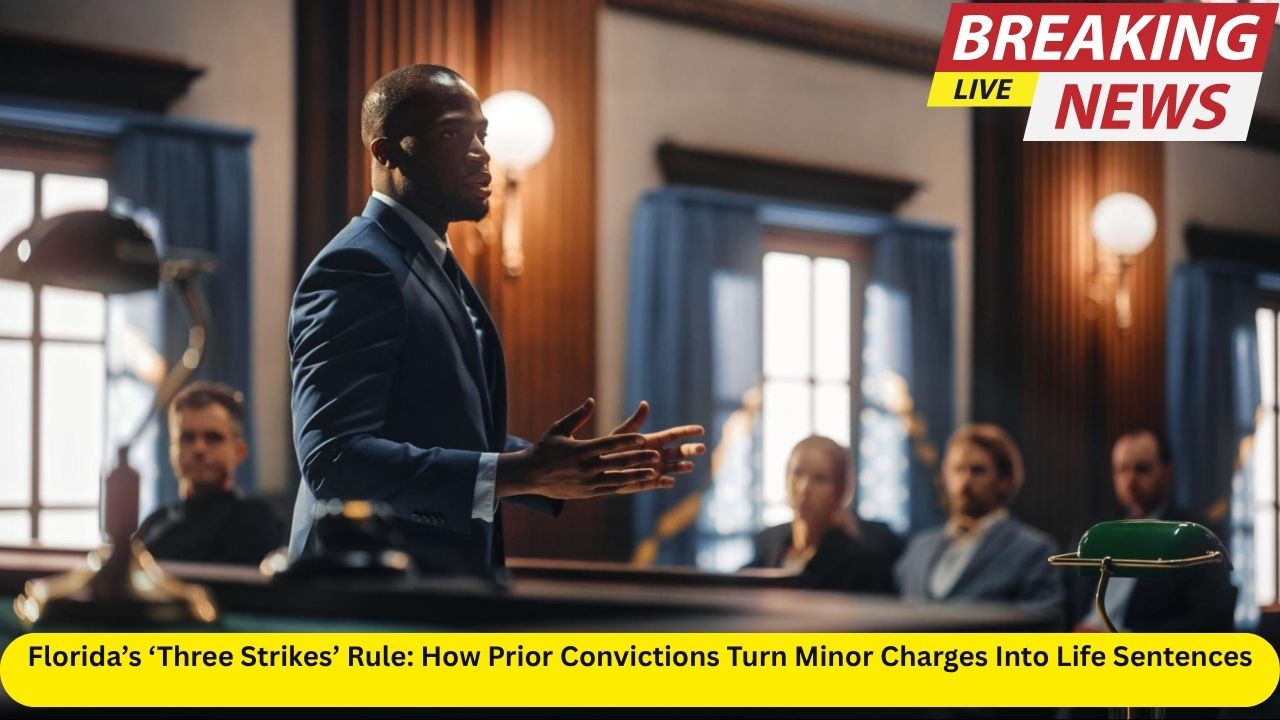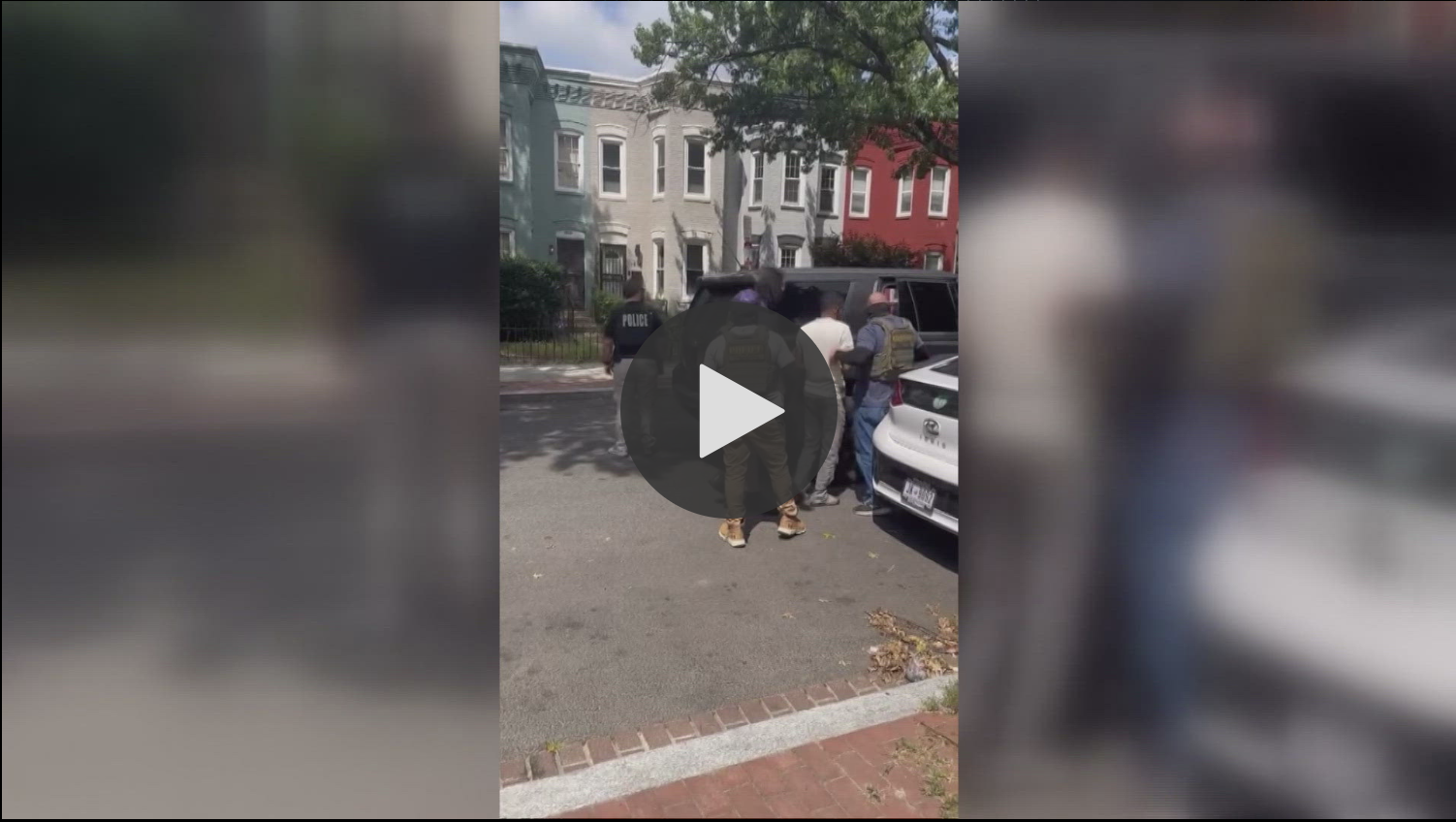Florida is home to sunshine, sandy beaches, and a criminal justice system that’s among the harshest in the country. One of the state’s most controversial legal policies is its “Three Strikes” rule. Officially known as the Prison Releasee Reoffender (PRR) Law, this rule can turn what seems like a minor third offense into a mandatory life sentence—no parole, no second chances.
From Miami to Jacksonville, and from Orlando to Pensacola, the implications of the “Three Strikes” rule continue to raise eyebrows, especially among reform advocates, attorneys, and the families of those impacted. The law was originally crafted to curb violent repeat offenders, but over the years, critics say it has cast a much wider net—capturing non-violent individuals who made poor decisions, often years apart.
Understanding Florida’s ‘Three Strikes’ Rule
Florida’s “Three Strikes” law applies to individuals who have been convicted of two prior felonies, and then are convicted of a third qualifying felony. The third strike triggers a mandatory sentence—often life without parole—if the felony falls under specific categories defined in the statute.
The law is designed to apply only to violent offenders, but its broad language means that people with non-violent or low-level offenses can also fall under its jurisdiction. Additionally, Florida’s law includes other enhancement statutes like Habitual Felony Offender (HFO) and Violent Career Criminal (VCC), which allow judges to hand down lengthy sentences even when the third strike is not especially severe.
Key provisions of the law include:
-
The offender must have been released from prison within the past 3 years.
-
The third offense must be one of the listed qualifying felonies.
-
No plea bargaining is allowed once the law is invoked.
-
Judges have no discretion—the sentence is mandatory.
The Origins of the Law: Tough on Crime Era Policies
Florida passed the “Three Strikes” rule in 1995 during a nationwide wave of “tough on crime” legislation. The law was intended to target repeat violent criminals, following the highly publicized murder of 9-year-old Jimmy Ryce in Miami-Dade County. Lawmakers rushed to introduce mandatory sentencing schemes, and the Three Strikes rule was a centerpiece of that reform.
Cities like Tampa, Fort Lauderdale, and Gainesville began to see rapid increases in incarceration rates shortly afterward. With the goal of protecting the public from violent criminals, the law was backed heavily by both Republican and Democratic legislators.
However, as incarceration rates grew and the prison population ballooned, it became clear that the law had wide-ranging effects far beyond its original intent.
Real-World Cases: When Small Mistakes Turn Into Life Sentences
Jacksonville: A Shoplifting Case Turns into a Life Sentence
In Duval County, a Jacksonville man was sentenced to life in prison after being convicted of shoplifting goods worth just over $150. He had two previous non-violent drug offenses in the early 2000s. Under Florida’s habitual offender statute, his third felony—retail theft—was enough to trigger the Three Strikes enhancement.
The man had turned his life around after his prior convictions and had maintained steady employment. However, the third strike landed him in prison for life, sparking outrage and media attention across the state.
Orlando: Possession of Pills Leads to Life Without Parole
In Orange County, a woman in her late 30s was found in possession of a few oxycodone pills without a prescription. With two prior drug possession felonies, she was charged under the PRR statute and received a life sentence with no possibility of parole.
Despite pleas from her family and evidence that she was struggling with addiction—not criminal intent—judges had no leeway under the Three Strikes framework. Her case has since become part of a broader conversation about the criminalization of addiction.
Miami: Minor Assault Becomes a Career-Criminal Charge
In Miami-Dade, a minor bar fight escalated to felony battery charges for a man with two prior felony convictions from his youth. Though no weapons were used and no major injuries occurred, prosecutors pursued charges under the Career Criminal statute. He now serves a 30-year sentence for what many argue was a misdemeanor-level fight.
The Role of Prosecutorial Discretion
One of the most controversial aspects of Florida’s Three Strikes law is the power it gives prosecutors. Because judges cannot reduce or negotiate sentences once the statute is triggered, the burden of mercy—or harshness—falls entirely on the state attorney’s office.
In cities like Tallahassee and St. Petersburg, district attorneys have adopted different approaches. Some jurisdictions use the law sparingly, while others wield it aggressively. This has led to significant disparities across counties.
For example:
-
In Pinellas County, state attorneys tend to file for habitual status in fewer than 5% of cases.
-
In Hillsborough County, the same designation is pursued in over 20% of eligible cases.
These disparities suggest that justice in Florida often depends not on what was done, but where it was done.
Racial and Economic Disparities
The Three Strikes rule disproportionately affects people of color and those from low-income backgrounds. According to Department of Corrections data:
-
Over 68% of individuals serving enhanced sentences under the statute are Black or Latino.
-
Incarcerated individuals from economically depressed areas like Liberty City (Miami), Springfield (Jacksonville), and Pine Hills (Orlando) are overrepresented in Three Strikes cases.
Critics argue that systemic inequities in education, legal representation, and policing contribute to the high number of minority defendants facing habitual sentencing enhancements.
Overcrowding and the Cost to Taxpayers
Florida has one of the highest incarceration rates in the nation. As of 2025, more than 82,000 individuals are behind bars in state prisons. Of those, nearly 9,000 inmates are serving enhanced sentences due to prior felony convictions under the Three Strikes or habitual offender statutes.
The average cost of incarcerating one person per year in Florida is around $25,000. That means the state spends over $225 million annually just on inmates serving time due to enhancement laws—many of whom would otherwise be serving 1–5 year terms.
Cities like Lakeland and Panama City have voiced concerns about the budgetary toll of overcrowded prisons on public education, infrastructure, and healthcare.
Calls for Reform and Legislative Efforts
Reform efforts have gained momentum in recent years, led by bipartisan coalitions and public interest law firms.
Some key proposals include:
-
Judicial discretion reforms: Allowing judges to override mandatory sentences in non-violent or exceptional cases.
-
Retroactive reviews: Permitting resentencing for those already serving life due to non-violent third strikes.
-
Narrowing the scope of qualifying felonies: Removing minor property crimes or drug possession from the statute’s purview.
Organizations such as the Florida Justice Reform Institute and FAMM (Families Against Mandatory Minimums) have advocated these reforms in legislative hearings and in campaigns across Tampa, Sarasota, and Daytona Beach.
Although several reform bills have been introduced in the Florida legislature over the past five years, none have yet passed. Opposition from powerful lobbying groups, including police unions and some prosecutor associations, has stalled progress.
Public Opinion and High-Profile Cases
Public sentiment is slowly shifting. A 2024 statewide poll found that:
-
72% of Floridians believe judges should have discretion in Three Strikes cases.
-
63% support retroactive resentencing for non-violent offenders serving life sentences.
High-profile cases featured in documentaries, podcasts, and news reports have raised awareness, particularly among younger voters. Social media activism from platforms in cities like West Palm Beach and Fort Myers has amplified the stories of families impacted by the law.
Comparison With Other States
Florida is not alone in having a Three Strikes law, but its version is among the harshest. California, for instance, reformed its Three Strikes law in 2012 to exclude non-serious and non-violent felonies as third strikes. This change led to the release of thousands of inmates and has been credited with reducing prison overcrowding without increasing crime rates.
States like Texas, Georgia, and Arizona also have enhancement laws, but most allow for some form of judicial discretion or parole eligibility.
In contrast, Florida remains one of the only states where life means life without parole, even for third-strike cases that did not involve violence.
The Human Toll
Behind every statistic is a human story. From a father in Pensacola serving life for stealing a toolbox, to a grandmother in Ocala locked up over prescription pill possession, the law has left thousands of families devastated.
Children grow up without parents. Taxpayers foot the bill for lifelong incarceration. Communities lose members who might have otherwise recovered, reformed, and contributed back to society.
Conclusion: Time for a Smarter, Fairer Approach
The Three Strikes rule in Florida was born from a desire to protect the public, but it has also produced countless stories of disproportionate punishment and inflexible justice. As cities across the state—from Clearwater to Coral Springs—reckon with questions of fairness, fiscal responsibility, and racial equity, the time has come to reexamine this law.
Reform doesn’t mean being soft on crime—it means being smart on justice. It means ensuring that punishment fits the crime, that redemption is possible, and that every Floridian is given the chance to move forward, not just locked away forever for mistakes made in the past.
















Leave a Reply